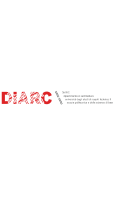Mapping Inequalities seeks to discover and represent the new spatial inequalities emerging within large cities in Southern Europe.
The research starts from the assumption that, alongside the deep-rooted inequalities bound to differences in income and social condition, contemporary urban areas are the place of growing inequalities deriving from changes in the local economies, welfare policy, housing market, state of the environment, transport and mobility, and other processes. Since these driving forces have the power to reshape both the social and physical structure of cities, understanding their implications over time and space is seen as the precondition to create more just and sustainable futures in urban areas.
In this context, cities in Southern Europe provide additional complexity, as spatial inequalities are the mirror of striking differences for people in the access to basic services, to safe and quality public spaces and, more broadly, to social opportunities.
Mapping Inequalities will provide the following outcomes:
- A new conceptual framework to measure, analyze and represent emerging patterns of spatial inequalities within urban areas, including the definition of an “Urban Inequality Index” to help comparative analyses.
- A GIS-based Atlas of spatial inequalities for the cities of Naples and Palermo, resulting from the geographical projection of fine-grained quantitative and qualitative indicators, starting from the census units scale.
- Exploratory case studies of four Southern European cities – Lisbon (Portugal), Barcelona (Spain), Marseille (France), and Athens (Greece) – to discover the state of the art and innovative practices in addressing urban inequalities.
- Guidelines for policymakers to suggest principles, methods and tools to reducing the impact of spatial inequalities in future urban development.
The project is led by a multidisciplinary research team of urban planners, social scientists, geographers, demographers, and psychologists, supported by an international board of experts from different countries.


